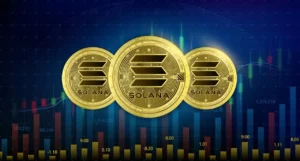The debut of highly anticipated spot Ethereum exchange-traded funds (ETFs) has been met with a mixed bag of results. While seven of the eight new ETFs managed to attract net inflows on their second day of trading, the overall market experienced net outflows of $113.3 million.

A primary culprit behind the underwhelming performance is the Grayscale Ethereum Trust (ETHE), which has seen massive outflows since its conversion to a spot ETF. The trust hemorrhaged $327 million on its second day, bringing total outflows to a staggering $811 million in just two days.
This exodus of funds from ETHE has overshadowed the positive performance of the new ETFs. Fidelity Ethereum Fund (FETH) and Bitwise Ethereum ETF (BITW) emerged as top performers, attracting $74.5 million and $29.6 million, respectively. However, BlackRock’s iShares Ethereum Trust (ETHA), which led the pack on the first day, saw inflows dwindle to $17.4 million.
The recent performance of Ethereum ETFs echoes the challenges faced by Bitcoin ETFs during their initial launch. Many analysts attribute these outflows to the conversion of Grayscale Bitcoin Trust, which also experienced significant redemptions.
Ethereum’s price has also taken a hit, falling over 6.8% in the past 24 hours. This decline is partly attributed to a broader market sell-off, with the S&P 500 dropping 2.3%. However, Ethereum’s steeper decline compared to Bitcoin suggests that the cryptocurrency may be more sensitive to ETF-related inflows and outflows, as predicted by Kaiko analyst Will Cai.
Despite the initial challenges, the launch of Ethereum ETFs marks a significant milestone for the cryptocurrency industry. As the market stabilizes and investors gain a better understanding of these new investment vehicles, it is expected that trading volumes and inflows will increase.
Disclaimer: The information in this article is for general purposes only and does not constitute financial advice. The author’s views are personal and may not reflect the views of Chain Affairs. Before making any investment decisions, you should always conduct your own research. Chain Affairs is not responsible for any financial losses.



